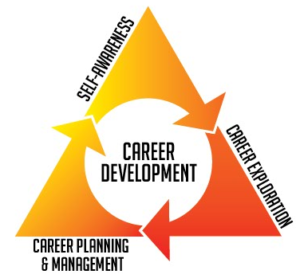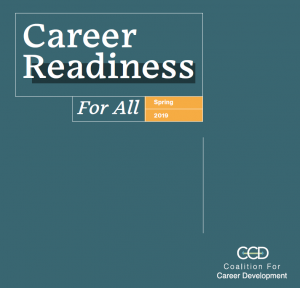Why Career Development?
Our goal is to inspire individuals to turn their passion, talent and abilities into successful careers and fulfilling lives. We believe all individuals should be empowered to choose a meaningful career and education pathway to position themselves for lifelong success. Choosing a career should never be left to chance or luck. Ideally, it is an informed decision-making process.
What do you need to know?
Professional education and business/industry groups across our state and nation are calling for improved career readiness of our youth. A majority of states have legislation requiring career planning in schools. The world of work has changed. A high school diploma alone no longer guarantees a decent living wage. One reality of today’s workforce, however, that has remained the same is that everyone needs to develop employability and career skills for the workplace. A typical career path today does not necessarily follow the traditional course of high school, college, and long-term employment. Today, there are multiple pathways to rewarding careers. Today, it is common to anticipate several entrance and exit points among jobs and education and training throughout our working lifetime. Career development skills equip individuals to take ownership in navigating their own career pathway.
Career education is good for students! Career development is positive student development. Research shows; if students see the relevance and meaning in school, it results in improved interest and academic performance. Students become more motivated, self-directed learners when they understand the relationship between academics, career and education planning and achieving their own career goals.
- Career development allows individuals to discover who they are, what they like to do and what they do best.
- Many students are frustrated in school because they do not see the link between their coursework and goals for the future. We want student to understand how coursework and activities can enhance their strengths and move them toward their desired future.
- Students often have limited exposure to the full range of possible jobs that are available. Without exploration, students may simply resort to selecting careers they see in their immediate surroundings or on television and in the media rather than selecting options that align with their own interest, skills or work values.
- Nearly all careers require education beyond high school. Knowledge of certifications or degree opportunities, college options, entrance requirements, application process and financial aid is vital for students and families to learn.
- All students benefit from career development resulting in a personal learning plan and portfolio to guide them through high school graduation and beyond to a postsecondary choice of apprenticeship, higher education, employment, military or entrepreneurship.







